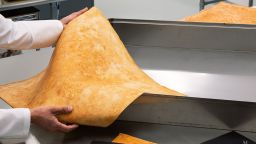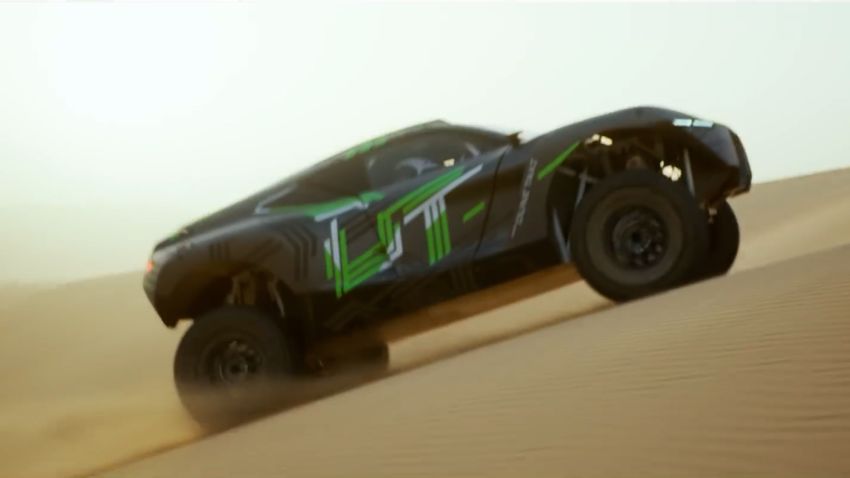General Motors’ venture capital arm has invested in a California startup that’s making imitation leather from mushrooms.
The material is made by MycoWorks using the root-like structures of mushrooms, called mycelia. It could provide an alternative to both traditional leather made from animal skins, usually cattle, and artificial leather made from plastics. The auto industry is the largest user of leather other than for shoes, according to 2015 data from International Council of Tanners.
MycoWorks grows these threadlike mycelia into flexible, leather-like sheets. The resulting material feels like leather, has similar durability and can be colored using processes that do not involve harmful substances, just as animal-based leather can.
The mycelia are grown in trays of organic material, usually something like wood pulp, that the mycelia break down and consume as they grow. Using various processes company representatives declined to discuss, the mycelia are made to interweave as they grow, forming the leather-like material. The sheets can be made of various thicknesses and can be much thinner than leather, said co-founder Sophia Wang.
MycoWorks and GM Ventures both declined to say how much GM Venture is investing.
“The collaboration will focus on [research and development] activity, exploring the opportunity to potentially use this leather alternative in future automotive design,” GM Ventures said in an emailed statement.

The company has used previous investment rounds from venture capital firms to increase its manufacturing capabilities, said Wang.
“We have a pilot plant here in Emeryville, [California], where we produce tens of thousands of sheets per year and we are launching a full scale commercial-sized factory in South Carolina next year,” said Wang. “We started construction already and this factory will do millions of square feet per year.”
It takes a number of weeks, rather than years, to grow a sheet of the Reishi material similar in size to roughly half a cowhide, Wang said. Reishi’s uniformity eliminates the need to dispose of material due to blemishes, as happens with leather made from animal hides, she said.
Fine Mycelium is MycoWorks’ trademarked term for the basic material from which the imitation leather is made. It is the final leather-like material itself that is called Reishi. GM’s partnership will help MycoWorks develop Reishi specifically for automotive purposes including uses on seats, dashboards and steering wheels. Auto interiors can be a particular challenge for various materials because of the extremely high temperatures inside parked cars and exposure to various substances, including spilled food and skin lotions.
“GM marks MycoWorks’ first partnership outside of the fashion industry, demonstrating the infinite possibilities and applications for Fine Mycelium,” MycoWorks chief executive Matt Scullin said in a statement.
MycoWorks has previously worked with the French fashion house Hermés to create a different leather substitute called Sylvania. The company has also worked with hat designer Nick Fouquet to develop a line of hats made from Reishi.
MycoWorks was founded in 2013 by San Francisco artist Phil Ross and his collaborator Wang. Ross had been working with mycelia to create various sorts of sculptural structures, and his artwork has been exhibited at various institutions and shows including at the Museum of Modern Art in New York City. Large companies began approaching Ross about the possibilities of mycelia in a variety of industry applications, said Wang, so starting a company to commercialize the ideas seemed like a logical step. Some of those early inquiries were from auto companies, she said.
Earlier this year, Mercedes-Benz said it used mycelium-based materials in its EQXX electric concept car. MycoWorks was not involved in that project, which used a similar material from a competitor.
Correction: This story has been updated to clarify the name of MycoWorks' co-founder. It is Phil Ross.





